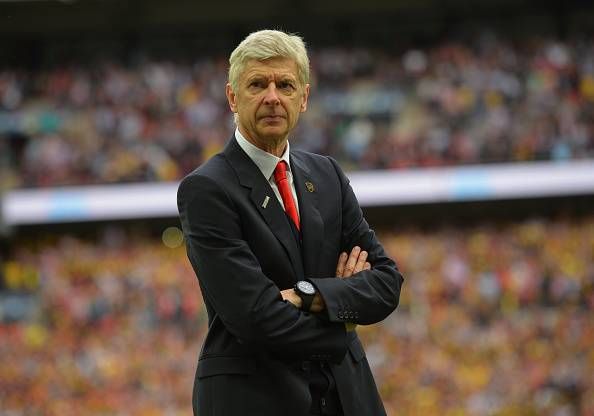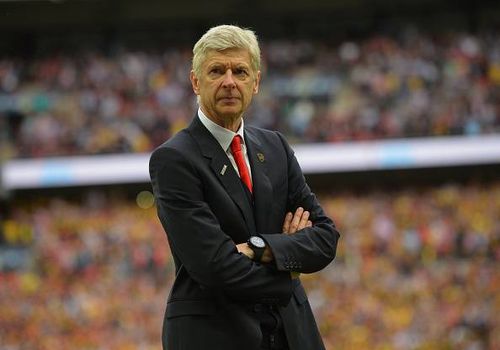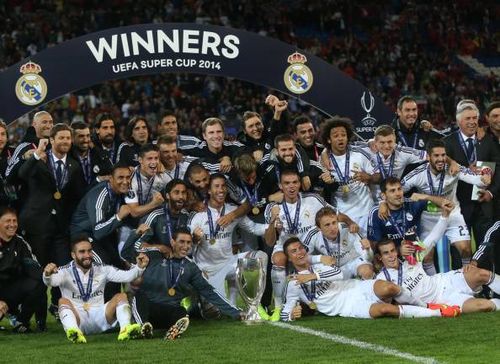
How Champions League revenue is distributed, and the monetary value of finishing in 4th place

Arsène Wenger drew a lot of flak and derision when he once suggested that finishing in fourth place was the equivalent of a trophy. Wenger stuck to his guns about the same issue six months later, when he told shareholders at Arsenal’s Annual General Meeting in 2012 that in his view, there were five trophies that teams were competing for every year:
“For me there are five trophies every season: Premier League, Champions League, the third is to qualify for the Champions League. The fourth is the FA Cup and then the League Cup.”
These statements ended up becoming a stick to figuratively beat both him and the club with, particularly when looked at in the context of the trophy drought (at the time). In the past two seasons, Arsenal have finished fourth and third, along with winning and then defending the FA Cup. However, it’s unlikely that anyone is going to claim that they’ve won back-to-back doubles.
From a purely financial standpoint though, it’s difficult to argue against Wenger’s claims about Champions League qualification.
The competition distributes in excess of €1 billion in prize money every year. It’s the most prestigious club competition in the world, arguably the pinnacle of a club footballer’s career. In its modern format, no team has ever managed to defend it, making it rather unique in that aspect, adding a certain level of mystique to it.
Like all cup competitions, there’s definitely an element of luck in it as well, allowing for the giant-killing stories that add to its unique appeal. It’s not often that you’re going to see FC Barcelona lose to Rubin Kazan. The television audiences have been steadily growing as well, with an estimated total of 180 million live viewers for the final of the 2014/15 edition that was held in Berlin, where FC Barcelona beat Juventus FC 3-1 to lift their fourth trophy in the last decade.
The result of such a massive TV audience is that there is a gigantic prize pool on offer each year. For the 2014/15 season (and the 2014 Super Cup), the total prize pool was €1.34 billion.
Breakdown of Champions League revenue
According to UEFA, the gross amount available for distribution among the Champions League (CL) participants is €1.28 billion. Of this amount, around 75% is available for distribution to the clubs (up to an extent of €530m), with the remaining 25% being reserved for European football. That remainder is used by UEFA to cover administrative expenses, organisational costs and solidarity payments towards various associations, leagues and clubs.
Furthermore, 82% of any commercial revenue in excess of €530m will also be funnelled towards clubs, with the remaining 18% used for other costs as mentioned above. What this basically means is that the participating clubs are guaranteed a minimum prize pool of €397.5m (75% of €530m), with the understanding that there will be a minimum commercial income of €530m. Any further increase in commercial revenues will see 82% of that increased amount diverted to the clubs.
The UEFA Europa League (EL), so often seen as the proverbial poor relative, has that status further cemented by an allocation of €40m from the Champions League prize pool to bolster its own rather mediocre prize pool. An additional €3m is also taken to subsidize solidarity payments to sides eliminated in the qualifying phase of the two competitions (the CL and EL).
Amounts allocated for qualification, playoffs and the Super Cup
There is a fixed amount of €55m allocated for the playoffs. Of this, €2.1 million is given to the 20 clubs that participate in the playoffs. This amount is deducted from the previously mentioned €1.34 billion, and doesn’t affect the actual prize pool of €1.28 billion. It includes payments to every domestic champion club that misses out on qualification for the Champions League group stage, granting them around €200,000.
All clubs knocked out in the first qualifying round will receive €100,000, while those eliminated in the second qualifying round will receive €175,000 each. Clubs eliminated in the third qualifying round will earn €200,000 each.
The prize pool for the Super Cups is also drawn from the Champions League revenues. Last season’s winners Real Madrid earned €3 million while runners-up Sevilla earned €2.2m.

Distribution of prize money
It’s important to note here that the prize pool for the Champions League is divided into two categories: fixed payments and market pool. Fixed payments are those which are guaranteed to the clubs based on performances. This includes wins and qualification to the later stages of the competition.
The fixed payments can be broken down as follows:
| Participation in group stage | €8.6m |
| Group Stage performance bonuses | €1m for win; €500,000 for a draw |
| Round of 16 qualification | €3.5m |
| Quarter-final qualification | €3.9m |
| Semi-final qualification | €4.9m |
| Runners-up | €6.5m |
| Winners | €10.5m |
Note that these are the possible payments to just one team. Thus, the possible prize money from just the fixed payments for the winner (assuming they win just four group stage games) is nearly €42m. However, this is just one part of the prize pool.